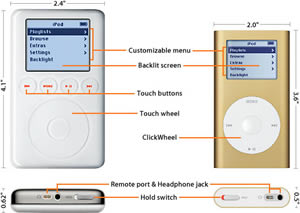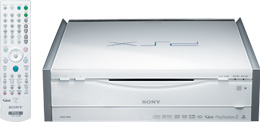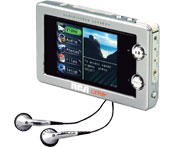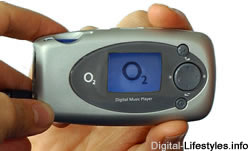Warp records have been a major force in electronic music for fifteen years (Band such as Aphex Twin, Autechre and Squarepusher) and are equally know for their Internet advances, being early converts to the Web when it was just beginning. The UK company today they launched a service called Bleep that sells all of their musical back catalog online – but the product their customer recieves is substancially different from the myriad of MeToo music services, it is a unprotected, high quality MP3. Going against the tide of the major record companies, Warp, through Bleep, have decided to not use Digital Right Management (DRM), in their words
“Bleep music has no DRM or copy protection built in. We believe that most people like to be treated as customers and not potential criminals.”
Pricing is slightly higher than the now-standard 99c. With individual tracks at 99 UK pence (~$1.80, ~€1.40) and albums at £6.99 (~$12.70, ~€10) or less. Payment can be made using PayPal, credit cards or, for UK users, premium rate SMS. Refreshingly reasonably after the bandwidth charges and Bleep running costs are subtracted, the artist gets half of the album or track price.
The tracks have been encoded at a slightly higher bitrate than Apple’s offering, averaging 205k vs 192k and are expected to be excellent through the use of the LAME (LAME Ain’t an MP3 Encoder), the open source and highly-rated encoding software taking advantage of the Variable Bit Rate (VBR).
We are impressed with the thinking and technology behind Bleep and will be writing a review of it on Friday.
 The
The  Following the recent launch of Sony’s PSX, which combines the functions of a PlayStation 2, PVR and DVD burner (
Following the recent launch of Sony’s PSX, which combines the functions of a PlayStation 2, PVR and DVD burner ( Giant media group, Thomson, has announced the launch of a portable multimedia player that has 20Gb of hard drive storage and a built in colour screen which plays videos, show photographs and plays music. Sold in two guises, Europe (THOMSON LYRA Audio/Video Jukebox PDP 2860 – €749, ~£520) and USA (RCA RD2780 – $499.99), it will play back both MPEG-1 & MPEG-4 video and mp3, Windows Media Audio. It can also be upgraded to mp3PRO.
Giant media group, Thomson, has announced the launch of a portable multimedia player that has 20Gb of hard drive storage and a built in colour screen which plays videos, show photographs and plays music. Sold in two guises, Europe (THOMSON LYRA Audio/Video Jukebox PDP 2860 – €749, ~£520) and USA (RCA RD2780 – $499.99), it will play back both MPEG-1 & MPEG-4 video and mp3, Windows Media Audio. It can also be upgraded to mp3PRO. mm02, UK cellular provider, have launched the first European “over the air” music download service.
mm02, UK cellular provider, have launched the first European “over the air” music download service. BT have joined up with a partner, Ringtones Online, to offer ringtones, graphics and games for mobile phones. Potential customers will be able to freely browse a dedicated website on the street using the BT Internet Kiosks, then select, preview and purchase their choices. Payment can either be by inserting cash directly into the machine or electronically using credit card, text or by calling a premium rate phone number. Customer will pay £2 for the content, expect for games, which will be £4.50. By offering them from the street they are hoping to encourage the impulse purchasing.
BT have joined up with a partner, Ringtones Online, to offer ringtones, graphics and games for mobile phones. Potential customers will be able to freely browse a dedicated website on the street using the BT Internet Kiosks, then select, preview and purchase their choices. Payment can either be by inserting cash directly into the machine or electronically using credit card, text or by calling a premium rate phone number. Customer will pay £2 for the content, expect for games, which will be £4.50. By offering them from the street they are hoping to encourage the impulse purchasing.